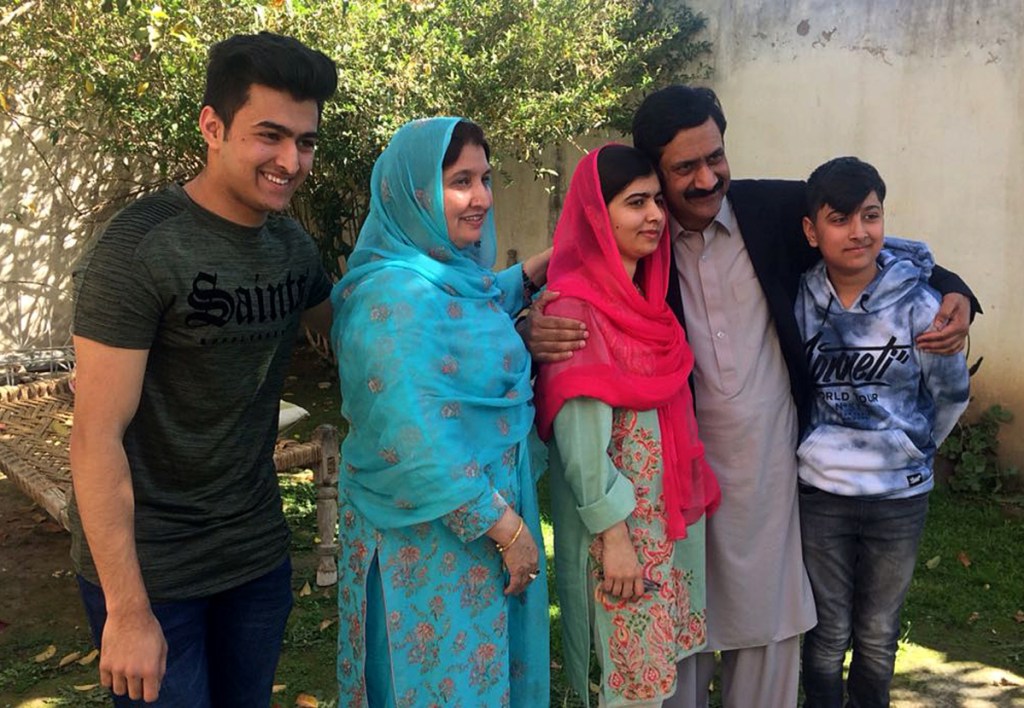Last week, before school in Augusta let out, I had the pleasure of handing out many copies of the book “I am Malala: How One Girl Stood Up for Education and Changed the World” to staff members and students at Cony Middle and High School.
We — I’m the district librarian — are reading the book this summer as a “One Book, One School” project. I was thrilled to see the enthusiastic response.
This week, all I can think is, “Could we have picked a better time to talk about human rights?”
I had the TV news on as I was getting ready this morning, and when I looked into the mirror, I was shocked to see how visibly upset I was. Inside, I have been crying over the fate of immigrant children separated from their families after they crossed into the U.S. from Mexico. I just didn’t realize the extent to which it was affecting me.
No rational human being can believe this practice is acceptable. The reaction against it has crossed the political spectrum; former first lady Laura Bush expressed her concerns in a recent opinion piece in The Washington Post, for example. Other Republicans have been vocally critical of it. I am dismayed by Attorney General Jeff Sessions’ misuse of the Bible to validate a policy of taking children from their parents, incarcerating them in makeshift detention centers and forbidding caregivers to comfort them.
Really, as a federal official, Sessions should not be using the Bible to prop up any government policy. But putting that faux pas aside, I’d like to remind him that Jesus said, “Love thy neighbor as thyself.” That statement, actually, is the whole basis of Christianity.
But as Woody Guthrie wrote and sang at the end of the Great Depression, “If Jesus was to preach what he preached in Galilee/They would lay Jesus Christ in his grave.”
I can stew and fret over hypocrisy and injustice. But I’ve tried to be constructive as well, by writing to Sen. Susan Collins who, as of this writing, has condemned the separation policy while opposing a Democratic bill to end it that has the support of Sen. Angus King. Posting on social media is preaching to the choir, as so many of my friends agree with me, but I post anyway. I’d be willing to march on this issue, if the opportunity presented itself.
But as an educator, I also can try to encourage people to use their critical thinking skills and to widen their perspectives. And I am hoping Malala Yousafzai can help me.
Malala was a keen, competitive student when the Taliban took control of her region of Pakistan in 2007. She spoke out against the strictures the Islamic militant group sought to enforce against women, and continued to go to school in secret. In 2012, a Taliban gunman shot Malala point-blank in the head as she rode home on a school bus. She nearly died; but after a miraculous recovery, she continued her activism and became the youngest person to receive the Nobel Peace Prize.
Her story is inspiring on so many levels. Malala is a passionate advocate for education and the right of women to lead free and productive lives. She is courageous. She has persevered against great odds. If we look at her story with a wide lens, we can see how wrong — and ultimately destructive — it is to treat people as anything less than what they are: human beings, deserving of respect.
Every incoming sixth- and seventh-grade student in Augusta has received a copy of the book, and we are encouraging parents, staff members and high-schools students to read it. In the fall, we’ll have programs and discussions revolving around the themes that arise from Malala’s story.
When we see people as individuals, rather than simply as members of a group, we’re better able to treat them fairly. This “zero tolerance” policy on illegal immigration across our border with Mexico paints all would-be migrants with the same brush. It leads us believe none of them belongs here.
As a librarian, and, perhaps more importantly, as a lifelong, avid reader, I know that reading about other cultures helps us to feel compassion for, and to begin to understand, those who are unlike ourselves on the surface. Malala is a Pakistani, a Muslim, a young woman in a hijab. But the most important thing to know about her is that she is a fierce advocate for education. And not only that: education as a game changer.
In 2013, Malala addressed the United Nations. She said, “One child, one teacher, one book and one pen can change the world. Education is the only solution. Education first.”
Oh, Malala, I agree. And I promise to see what I can do.
Liz Soares welcomes e-mail at lizzie621@icloud.com.
Send questions/comments to the editors.


